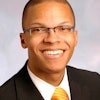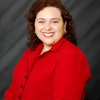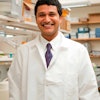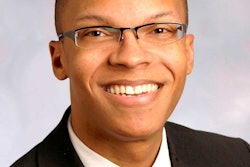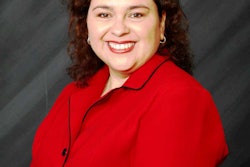Despite being a lifelong lover of math, Dr. Federico Ardila spent much of his undergraduate studies certain he would pursue some other vocation. After all, he didn’t know many mathematicians in his native Colombia. As it turned out, Ardila not only teaches math, but he’s building a small but steady pipeline of future mathematicians — in this country and his homeland.
Through the online classes that are part of his San Francisco State University-Colombia Combinatorics Initiative, Ardila brings together mathematics students from SFSU; the University of California, Berkeley; and Universidad de Los Andes in Bogotá, Colombia.
A relatively new branch of math that studies finite — or countable — discrete structures, combinatorics is a bridge between pure and applied mathematics. While non-mathematicians may be unfamiliar with the field, they have surely seen it in daily life. For instance, Sudoku puzzles are toy versions of combinatorics. The objective of Sudoku is to fill a partially filled grid with digits so that, when completed, each horizontal row, column and sub-grid contains every number from 1 to 9 no more than once.
Offering much more than recreation, though, combinatorics has computer science and optimization applications. When large geographical areas devastated by natural disaster require entire telecommunications networks to be replaced, combinatorics provides tools to determine the most cost-effective strategy to reconnect communities.
Last August, Ardila helped organize a gathering of top combinatorics mathematicians from around the world that was hosted at SFSU.
Ardila’s online initiative inspired two of his Colombian students to enroll at SFSU. They each earned their master’s last spring and are now at Cornell University and Massachusetts Institute of Technology, respectively, pursuing their doctorates. Ardila is optimistic that more will flock to SFSU.
The technology making his class possible was inspired in part by the films that figure skaters use to record their routines without camera operators. Ardila records his lectures with a camera that responds to his movement by using four heat sensors positioned around a room so that the camera can zoom in on, and away from, chalkboard writings as needed. After cutting the lecture into clips, he posts them on his web site.
Last summer, the National Science Foundation awarded Ardila a prestigious CAREER grant, which supports young faculty who excel in integrating research and education. The grant will also let him take more SFSU students to Bogotá to work alongside their peers. He has already taken four students there, where they attended conferences and collaborated on research.
Ardila wowed his teachers as an 8-year-old when he earned the highest score among all the elementary schoolers in his native country in a math competition that relied on logic, puzzle-solving and applying numerical concepts. “I had so much fun, I didn’t think it was a big deal.”
He represented his country four times in the International Math Olympiad for high school students. He also has coached the Colombian team, helped design exams and still scours the contest for new math talent.
Particularly gratifying is when he discovers a diamond in the rough — perhaps a youth from a small Colombian town he has never heard of or from an under-resourced school whose family might ordinarily expect him or her to work in construction or another physically risky job in order to immediately earn income. Instead, that youth could be groomed to one day work in finance or technology.
Ardila, also an avid soccer player and disc jockey of Colombian music, says he’s proud to teach at SFSU, which boasts a diverse math master’s program. Of the 51 SFSU students this academic year, one-third are women and slightly more than half are racial minorities. “Young kids need role models, and our department looks more like the demographics of this country than most math programs,” he says.
Dr. Richard Stanley, an MIT math professor who was Ardila’s dissertation adviser, notes that “what really sets Federico apart from others is his devotion to promoting and encouraging mathematics. I have never heard of a younger person besides him having positions of such responsibility.”
Title: Assistant professor of mathematics, San Francisco State University
Education: Ph.D.: Mathematics, Massachusetts Institute of Technology;
B.Sc.: Mathematics, MIT
Age: 34
Career Mentors: Richard Stanley (MIT), Bernd Sturmfels (University of California, Berkeley), María de Losada (Universidad Antonio Nariño)
Words to Live By: There are different ways of measuring success. Don’t compromise the way you live. Believe in your way of doing things even if it’s very different from what others do.

